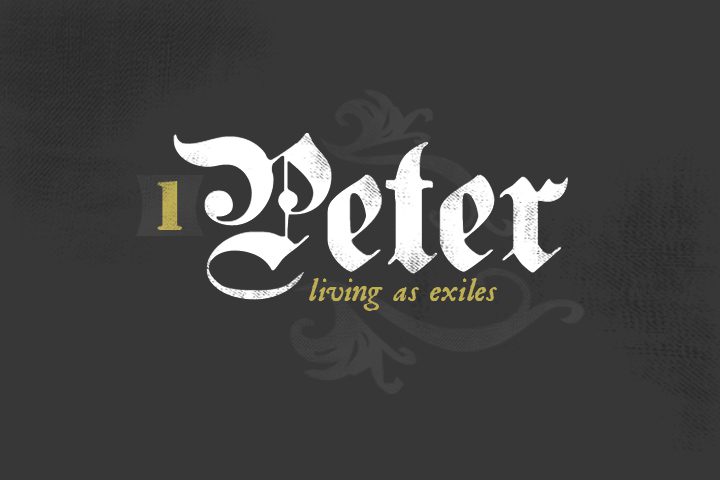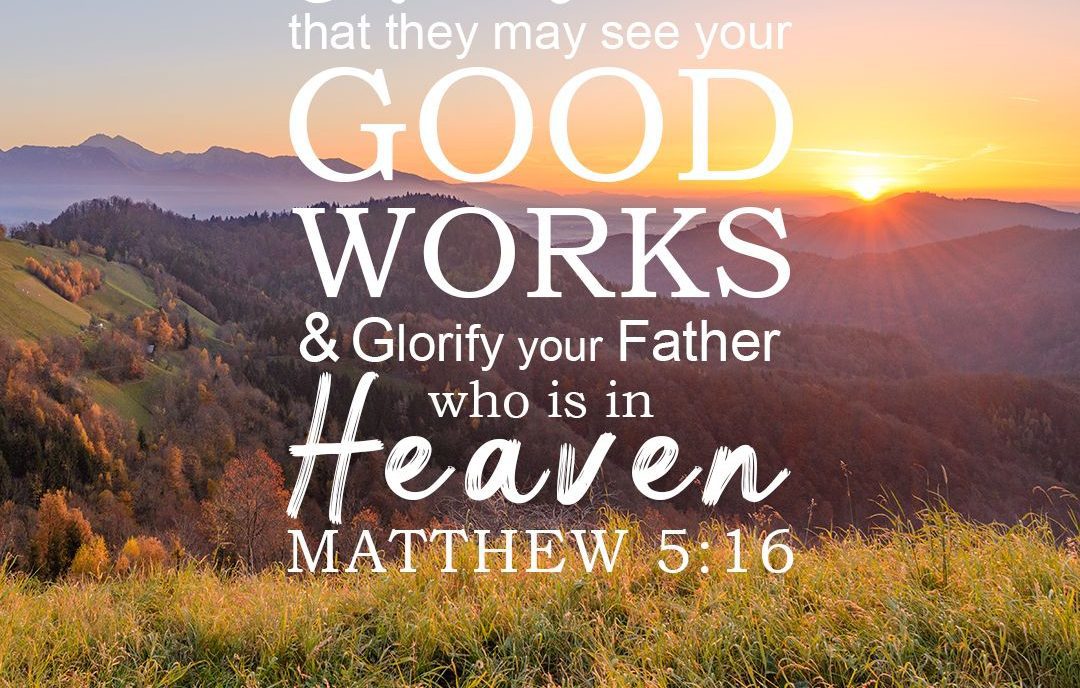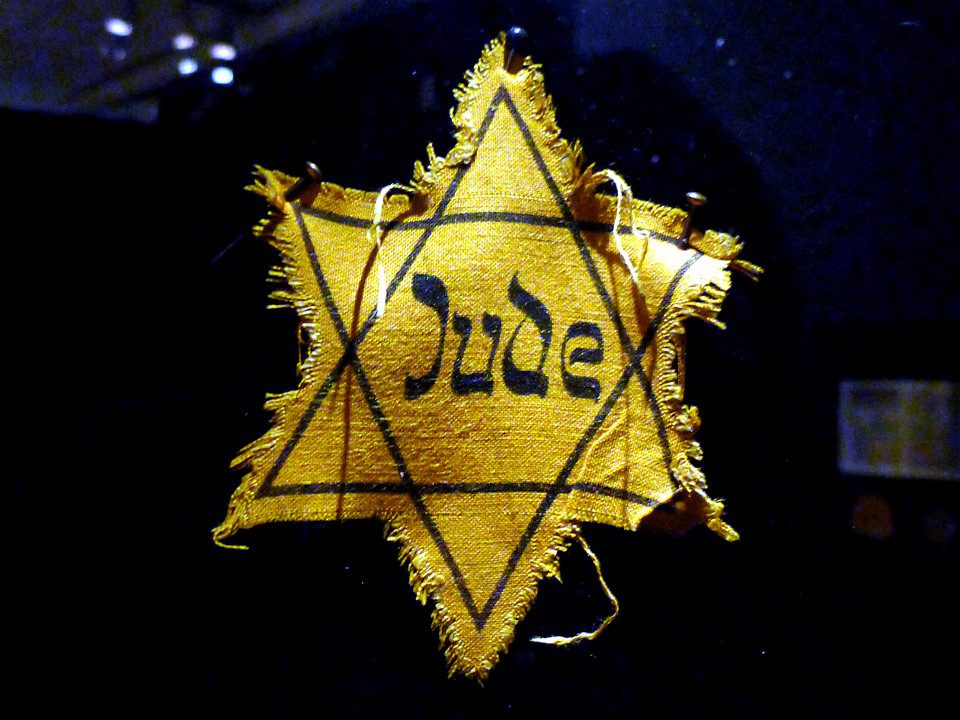Why should we submit to anyone? If a follower of Christ Jesus encounters difficulty from your community, your boss, your spouse or anyone else, why submit to their will rather than your own?
We began last time with Peter telling us the purpose of our good works through Christ Jesus:
Submit to every human authority because of the Lord… For it is God’s will that you silence the ignorance of foolish people by doing good. Submit as free people, not using your freedom as a cover-up for evil, but as God’s slaves.
1 Peter 2:13a,15-16 CSB
The Apostle opened his first letter to the persecuted church with blessings and encouragement concerning this salvation through Christ Jesus. But Peter quickly proceeds, warning the faithful against those opposed to the risen Savior.
He assures us that Jesus is the cornerstone of the church and that faithful followers of Christ are living stones. Yet because of Christ some will stumble because they disobey our Lord.
Peter now adds specific applications to their lives and ours.
Remember Our Example Before Men
No witness is better than a personal witness.
For you were called to this, because Christ also suffered for you, leaving you an example, that you should follow in his steps.
1 Peter 2:21
Although Peter had been part of the inner circle of the Lord, most first century believers had only the good works of the Apostles as their image of Christ risen and the power of the Holy Spirit.
Part of Peter’s authenticity becomes evident by his own admissions of failings. We first hear of this humility in Peter when Jesus first called him.
Luke 5:
The crowds are pressing into Jesus who is teaching near Lake Tiberias, as the Romans called this Sea of Galilee. He sees two boats having returned from less than successful fishing that day.
3 He got into one of the boats, which belonged to Simon, and asked him to put out a little from the land. Then he sat down and was teaching the crowds from the boat.
Peter, of course, also listens to Jesus preach from his boat.
4 When he had finished speaking, he said to Simon, “Put out into deep water and let down your nets for a catch.”
5 “Master,” Simon replied, “we’ve worked hard all night long and caught nothing. But if you say so, I’ll let down the nets.”
6 When they did this, they caught a great number of fish, and their nets began to tear…
When Simon Peter saw this, he fell at Jesus’s knees and said, “Go away from me, because I’m a sinful man, Lord!”
Luke 5:8 CSB
Peter, James and John that day all became Jesus’ closest Disciples and friends. Surely believers who witnessed Peter during his brief years following the Lord’s resurrection came to know this humble, yet sometimes boisterous redeemed sinner who writes this letter.
1 Peter 2:
9 But you are a chosen race, a royal priesthood, a holy nation, a people for his possession, so that you may proclaim the praises of the one who called you out of darkness into his marvelous light.
1 Peter 2:9 CSB
If you are the one receiving this letter doesn’t this make you feel special, that is, set aside for God?
God chooses you through Christ! Peter is just the Lord’s humble messenger of the Good News. But then he explains this further to the largely gentile or non-jewish hearers of his letter.
10 Once you were not a people, but now you are God’s people; you had not received mercy, but now you have received mercy.
In Christ Jesus we are chosen, therefore we must act differently than the world around us. By God’s grace we have received mercy and can show our good works to others.
How to submit to others
13 Submit to every human authority because of the Lord…
We have already looked at the list of those we resist by our lack of humility. Peter will remind us later in his letter:
Since Christ had to suffer physically for you, you must fortify yourselves with the same inner attitude that he must have had.
1 Peter 4:1 JB Phillips New Testament
In this sense we feel the prescribed holiness of the priest made possible only by the grace of God through the Holy Spirit.
Masters
We abhor slavery. Yet in a sense all are slaves of servants to someone; Christians moreso, as Peter insists.
19 For it brings favor if, because of a consciousness of God, someone endures grief from suffering unjustly. 20 For what credit is there if when you do wrong and are beaten, you endure it?
This is a fair question the Apostle asks. For such a situation, whether physically or metaphorically, our beating is punishment for sin, a transgression of some law of man or a Law of God.
But when you do what is good and suffer, if you endure it, this brings favor with God.
Christ’s example before men
21 For you were called to this, because Christ also suffered for you, leaving you an example, that you should follow in his steps.
This witness of Jesus by Peter stands as a question to new Christians for every example to follow his mention of slaves or servants.
- Are you a servant of God? Then the Father is your Master.
- Is Christ Jesus your Lord? Then Jesus must be your new Master.
Why then do you not follow Jesus’ example before men?
22 He did not commit sin, and no deceit was found in his mouth; 23 when he was insulted, he did not insult in return; when he suffered, he did not threaten but entrusted himself to the one who judges justly.
We just have trouble doing that, new Christian or long-time believer, don’t we?
Then Peter reminds us of the reason Christ came to us as a man, the suffering servant predicted by scripture.
24 He himself bore our sins in his body on the tree [cross]; so that, having died to sins, we might live for righteousness.
The sinless Son of Man, Jesus, became the sacrificial lamb, His Blood the covering for our own sins. Therefore, we must live to righteousness.
For you were like sheep going astray, but you have now returned to the Shepherd and Overseer of your souls.
1 Peter 2:21 CSB
Submission to Husbands
In the same way, wives, submit yourselves to your own husbands…
Once again, a topic perhaps as malaligned as slaves serving masters.
Some translations soften the blow of this topic offensive to some women of the church. Wives are often more zealous for Jesus than their husbands.
It may be helpful for Christian wives to remember that Peter was a devoted husband, who called Jesus his Master. MacArthur’s outline heading: Submission in the Family may be most appropriate.
1 Peter 3:
Peter tells our sisters in the Lord why they must submit and how they must act to reflect Christ’s glory.
… so that, even if some disobey the word, they may be won over without a word by the way their wives live when they observe your pure, reverent lives.
Pure and reverent lives. How often do we hear this call even to Christian men? Other translations shed additional light on Peter’s meaning:
- While they behold your chaste conversation coupled with fear. KJV
- when they see your respectful and pure conduct. ESV
- as they observe your chaste and respectful behavior. NASB
Twenty-first century culture nearly everywhere has strayed far from these original meanings and we must not devalue Christian women in any way simply because the Bible clearly states the roles of both men and women.
Chaste and respectful behavior
ἁγνός – hagnos chaste – exciting reverence, venerable, sacred, pure; pure from carnality, chaste, modest; pure from every fault, immaculate; clean (in the Hebrew sense of cleansed)
Paul, in his letter to Titus uses this same word for wives when he encourages older women to mentor younger women in the church:
‘to be sensible, pure, G53 workers at home, kind, being subject to their own husbands, so that the word of God will not be dishonored.’
Titus 2:5 Strongs Concordance BlueletterBible.org
φόβος – phobos respectful – fear, dread, terror or alarm, that which strikes terror; also: reverence for one’s husband
What does it mean to reverence the Lord God? Or reverence Jesus Christ as your Lord?
Let us not confuse fear and dread with respect and reverence, not even of husbands, who must honor their wives. For the enemy of Christ would have some men fear their wives, having no reverence for Christ or God our merciful Father.
ἀναστροφή – anastrophē behavior – manner of life, conduct, behaviour, deportment” from G390; behavior:—conversation.
Of course our good works (or evil works) quickly become most evident by our words in women and especially in men. Peter’s additional encouragement to wives faithful to their husband and faithful to the Lord points toward a Christ-like example from women as well. The writer of Hebrews uses this same word also translated as conduct when he writes:
Remember those who led you, who spoke the word of God to you; and considering the result of their conduct, G391 imitate their faith.
Hebrews 13:7 NASB Strong’s concordance from BlueLetterBible.org
Your inner beauty
Remember, Peter is married. He may also have a sister or daughter – the Bible does not confirm this. Many, perhaps most of the Apostles were married, had daughters and sons, sisters and brothers.
Isn’t it most familial that in Christ the early church referred to each other as “brother” and “sister,” and greeted each other with a kiss?
Therefore acknowledging our humility of role, as Christ also humbled Himself as a servant, Peter points inward to our soul rather than the desirable outward appearances of the world.
3 {NASB} Your adornment must not be merely external…
The cultural particulars of the time or locale carry less importance, but reflect the appropriateness of the saints.
The imperishable qualities of a wife in Christ
4 [NASB] but let it be the hidden person of the heart, with the imperishable quality of a gentle and quiet spirit, which is precious in the sight of God.
She is a quiet and gentle soul. Oh, such a compliment to her husband, such a witness to a gentle Jesus. She also will submit to the Father – a bruised reed she will not break.
Peter puts forth the example of Sarah, wife of Abraham, as a holy example of a wife who does submit to her husband. She called him ‘lord,’ the Apostle reminds. A servant calls their master, lord.
Do you call Jesus Lord?
Peter also calls upon husbands to ‘live with your wives in an understanding way.’ What does he mean?
The Apostle presumes that as a brother in Christ that you have a ‘gnosis‘ of scripture and the Lord; that is, a deeper more perfect and enlarged knowledge of this religion, such as belongs to the more advanced.
She is ‘the weaker vessel,’ knowing less about God while she submits to you. It may have been so in the first century, yet in this day I must ask you, husbands who claim Christ, is it so?
Do you know more about the Bible and about the Lord than your wife? Who is truly ‘a weaker vessel’ in knowledge of Christ our Lord?
Is Christ your Lord?
Are you an unrepentant sinner or by grace a sinner saved in Christ Jesus?
In addition to living honorably as a witness to unbelievers, the Apostle next suggests how to live honorably among other Christians.
Beloved Christian brother, dear sister in the Lord,
Peter will next call upon all brothers and sisters in the Lord to do no evil. He has more instruction to those of us who submit to the teaching of Jesus.
To be continued...


